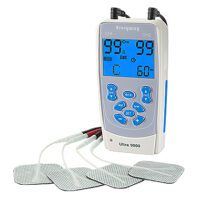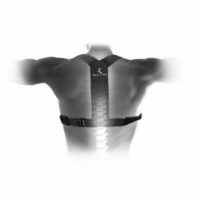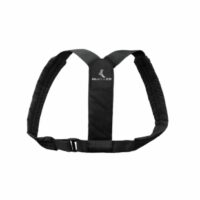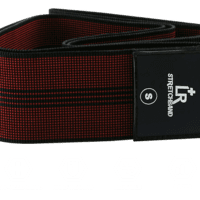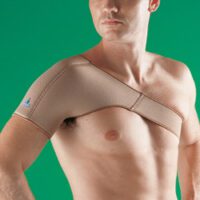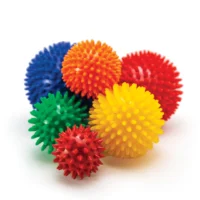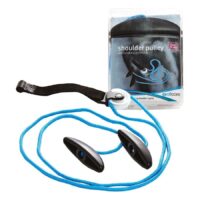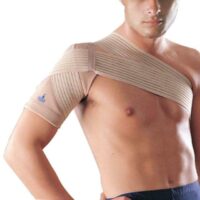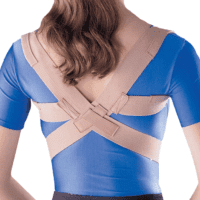Swimmers Shoulder
Article by Zoe Russell

Swimmers Shoulder
What is Swimmers Shoulder?
Swimmer’s Shoulder is a common condition affecting swimmers of all levels, characterised by pain and discomfort in the shoulder. This term encompasses various injuries arising from the sport’s repetitive and intensive nature.
Shoulder Anatomy and Physiology in Swimming
The shoulder, a complex joint, plays a crucial role in swimming. Understanding its anatomy helps in identifying and treating related injuries. Swimmers often experience stress on muscles and ligaments, leading to conditions like Swimmer’s Shoulder.
Causes and Risk Factors
Overuse, incorrect swimming techniques, and muscle imbalances are primary causes of Swimmer’s Shoulder. Recognising these factors is essential for effective treatment and prevention.
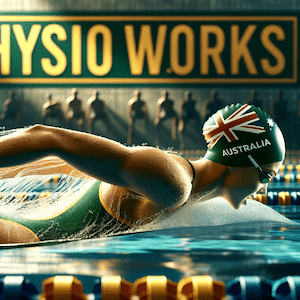
The Role of Physiotherapy
Physiotherapy is vital in managing Swimmers Shoulder, offering a proactive approach to prevent the condition from escalating. Early intervention by a physiotherapist is key, as it can significantly reduce the duration and intensity of the condition. Treatment usually involves a suite of exercises customised to strengthen and balance the shoulder muscles, thereby enhancing swimming mechanics. These exercises are not just about building strength; they also focus on improving flexibility and endurance of the shoulder muscles, crucial for swimmers.
Physiotherapists utilise a range of techniques for effective recovery. Manual therapy, for instance, involves hands-on techniques to mobilise joints, reduce pain, and improve circulation in the shoulder area. Furthermore, specific rehabilitation exercises are designed to target the muscles most affected by swimming, ensuring a focused and effective recovery.
An essential aspect of physiotherapy is education. Physiotherapists play a critical role in informing swimmers about proper swimming techniques and preventive practices. This includes advice on stroke modification, training schedules, and lifestyle changes that can reduce the risk of developing Swimmers Shoulder. By understanding and applying these principles, swimmers can continue to enjoy their sport while minimising the risk of injury.
Prevention and Treatment Strategies
Preventive measures are crucial in avoiding the development of Swimmers Shoulder. These include proper training regimens that emphasise technique and balance, rather than just endurance and strength. Maintaining balanced shoulder muscles is essential; this means focusing on both the primary muscles used in swimming and their supporting muscles to ensure overall shoulder stability.
Correcting stroke techniques is another significant aspect of prevention. This may involve working with a coach to tweak certain aspects of the swimming stroke to reduce strain on the shoulder. For those already experiencing shoulder issues, treatment strategies involve a period of rest to allow the inflamed tissues to heal, coupled with targeted physiotherapy. This approach not only addresses the immediate pain but also works towards long-term shoulder health.
Rehabilitation and Recovery Process
The rehabilitation process for Swimmers Shoulder is multi-faceted and tailored to each individual’s specific needs. It starts with setting realistic recovery goals – understanding that healing takes time and patience is key. The process includes a variety of exercises and recovery techniques, each designed to target different aspects of shoulder health. These exercises focus on gradually building strength, improving flexibility, and restoring normal shoulder function.
An important part of the recovery process is understanding and managing the psychological aspects of injury. Dealing with pain and the frustration of not being able to swim at full capacity can be challenging. Physiotherapists often provide support and guidance in this area, helping swimmers to stay motivated and positive throughout their recovery journey.
Success stories of swimmers who have recovered from Swimmers Shoulder with the help of physiotherapy are numerous. These stories serve as a testament to the effectiveness of a well-planned rehabilitation program. They also highlight the importance of adhering to the prescribed exercises and treatment plans, showing that with commitment and the right guidance, full recovery is achievable.
Conclusion
In conclusion, the role of physiotherapy in managing Swimmers Shoulder cannot be overstated. With a focus on prevention, tailored treatment strategies, and a comprehensive rehabilitation process, physiotherapy offers swimmers the best chance at a full recovery and the ability to return to the sport they love.
Related Articles
- Common Swimming Injuries – Discover a range of injuries common among swimmers, highlighting causes, symptoms, and preventive tips.
- Shoulder Pain – Explore detailed information on various shoulder pain causes, treatment options, and preventive measures.
- Rotator Cuff Injuries – Gain insights into rotator cuff injuries, a frequent issue for swimmers, including diagnosis, treatment, and recovery.
- Shoulder Impingement – Learn about shoulder impingement syndrome, its impact on swimmers, and effective treatment strategies.
- Shoulder Instability – Find out about shoulder instability, common risks for swimmers, and how to manage these conditions.
- Strength Training for Swimmers – Get information on strength training exercises tailored for swimmers to support shoulder health and prevent injuries.
- Flexibility Exercises for Swimmers – Explore flexibility exercises that can help prevent shoulder injuries and enhance swimming performance.
- Swimming Recovery Techniques – Learn about recovery techniques that are crucial for swimmers in managing shoulder stress and preventing injuries.
Shoulder Pain Causes
Common Injuries & Conditions
Understanding the common shoulder pain causes is crucial, as this discomfort can stem from various issues like rotator cuff injuries, arthritis, and frozen shoulder. Our guide offers a comprehensive exploration of these causes, providing insights into both acute and chronic conditions. It aims to equip you with knowledge and strategies for effective treatment and recovery, catering to those grappling with recent injuries or long-term pain. This resource is your go-to for navigating the complexities of shoulder pain and its management.


Rotator Cuff
- Rotator Cuff Injury: A common condition causing shoulder pain, often due to repetitive overhead activities.
- Rotator Cuff Tendinopathy: Inflammation or damage to the rotator cuff tendons, leading to pain and reduced mobility.
- Rotator Cuff Calcific Tendinopathy: Characterised by calcium deposits in the rotator cuff tendons, causing intense pain.
- Rotator Cuff Tear: Involves a tear in the rotator cuff muscles, often resulting from injury or wear over time.
- Bicep Tendinopathy: Affects the bicep tendon, leading to pain in the front of the shoulder.
Shoulder Impingement Syndrome
- Shoulder Impingement: A condition where shoulder tendons are pinched during arm movements, causing pain and limited mobility.
- Shoulder Bursitis: Inflammation of the bursa, a small fluid-filled sac in the shoulder, causing pain and discomfort.
- Swimmer’s Shoulder: An overuse injury common in swimmers, causing shoulder pain and impingement symptoms.
Shoulder Stiffness
- Adhesive Capsulitis / Frozen Shoulder: A condition where the shoulder becomes stiff and painful, often developing gradually without a specific cause.
Shoulder Instability
- Shoulder Dislocation: Occurs when the shoulder joint is forced out of position, causing pain and instability.
- Functional Shoulder Instability: Chronic instability in the shoulder, often leading to recurrent subluxations, dislocations and pain.
Acromioclavicular Joint
- AC Joint Injury: Involves damage to the acromioclavicular joint, common in athletes and after falls.
Bone Conditions
- Shoulder Arthritis: Degenerative joint disease affecting the shoulder, causing pain and stiffness.
- Broken Shoulder / Fractured Humerus: A break in the shoulder bone, often resulting from trauma or falls.
- Stress Fracture: A small crack in the bone, typically caused by overuse and repetitive activities.
Post-Operative Physiotherapy
Post-Operative Shoulder Rehabilitation: Essential for recovery, involving tailored exercises and therapies to regain strength and mobility after shoulder surgery.
- Subacromial Decompression: A surgical procedure to alleviate shoulder impingement symptoms.
- Shoulder Arthroscopy: Minimally invasive surgery for various shoulder conditions.
- Acromioplasty: Surgery to reshape the acromion and relieve impingement.
- Rotator Cuff Repair: Surgical repair of a torn rotator cuff.
- SLAP Repair: Surgery to fix a specific type of labrum tear in the shoulder.
- Biceps Tenodesis: Surgical procedure to reattach the biceps tendon.
- Biceps Tenotomy: Involves cutting the biceps tendon to relieve pain.
- Total Shoulder Replacement: Replacement of the shoulder joint with artificial components.
Muscle Conditions
- Muscle Strain: A tear or stretch in a muscle, often causing pain and limited movement.
- DOMS – Delayed Onset Muscle Soreness: Muscle pain and stiffness that occurs hours after unfamiliar or strenuous exercise.
Neck Arm Syndromes
Referred Pain: Pain in the shoulder that originates from another area of the body, such as the neck or spine.
- Neck Arm Pain: Pain that originates in the neck and travels down to the arm and shoulder.
- Cervical Radiculopathy: Occurs when a nerve in the neck is compressed or irritated, leading to shoulder pain.
- Thoracic Outlet Syndrome: A condition where nerves or blood vessels between the collarbone and first rib are compressed, causing pain in the shoulder area.
Systemic Conditions
- Fibromyalgia: A chronic condition characterised by widespread musculoskeletal pain, including in the shoulder.
- Rheumatoid Arthritis: An autoimmune disorder that can cause joint pain and damage throughout the body, including the shoulders.
Shoulder Products & FAQs
Explore our range of shoulder products and find answers to frequently asked questions about shoulder pain and treatment options.
Shoulder Pain FAQs
Your Comprehensive Guide to Understanding and Managing Shoulder Injuries
Welcome to the "Shoulder Pain FAQs" page, your go-to resource for understanding various aspects of shoulder pain, injuries, and how to manage them effectively. The shoulder is a complex joint that allows for a wide range of movements, but it is also susceptible to various injuries and conditions that can cause discomfort and limitations in daily activities.
In this comprehensive guide, we will explore the most common shoulder injuries, their causes, and how to identify and treat them. We'll also address frequently asked questions about specific shoulder conditions, providing you with valuable insights into your shoulder health.
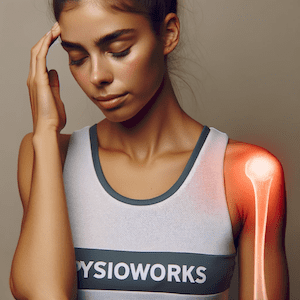

When Should You Worry About Shoulder Pain?
Shoulder pain can be caused by numerous factors, ranging from minor strains to more severe injuries. Knowing when to seek medical attention is crucial to prevent further damage and facilitate timely recovery.
Common Shoulder Injuries
We'll swing into the most prevalent shoulder injuries, shedding light on their causes, symptoms, and appropriate treatment options.
More info: Common Shoulder Injuries
What Causes Shoulder Pain?
Understanding the root causes of shoulder pain is fundamental to addressing the issue effectively. We'll explore the various factors that can lead to shoulder discomfort and how to mitigate them.
More info: What Causes Shoulder Pain?
What is Your Scapulohumeral Rhythm?
The scapulohumeral rhythm plays a vital role in shoulder function and movement. We'll explain what it is and its significance in maintaining a healthy shoulder.
More info: What is Your Scapulohumeral Rhythm?
Rotator Cuff: An In-Depth Analysis
The rotator cuff is a critical group of muscles and tendons in the shoulder. We'll dive into its anatomy, functions, and common problems associated with it.
More info: Rotator Cuff: An In-Depth Analysis
How Can You Tell If You Have Torn Your Rotator Cuff?
Identifying a torn rotator cuff can be challenging, but we'll provide you with essential signs to look out for and when to seek professional evaluation.
More info: How Can You Tell If You Have Torn Your Rotator Cuff?
Can You Diagnose A Torn Rotator Cuff Without An MRI?
Find out about diagnostic methods for a torn rotator cuff, including whether an MRI is always necessary for accurate diagnosis.
More info: Can You Diagnose A Torn Rotator Cuff Without An MRI?
Can You Lift Your Arm With A Rotator Cuff Tear?
Discover the limitations and challenges you may face if you have a torn rotator cuff and how to manage arm movement during the healing process.
More info: Can You Lift Your Arm With A Rotator Cuff Tear?
Will Your Shoulder Blade Hurt With A Torn Rotator Cuff?
Learn about the possible relationship between a torn rotator cuff and shoulder blade pain, and what it indicates about your shoulder health.
More info: Will Your Shoulder Blade Hurt With A Torn Rotator Cuff?
Will A Cortisone Injection Help A Torn Rotator Cuff?
Cortisone injections are sometimes used for shoulder pain, but their effectiveness in treating a torn rotator cuff is a point of interest we'll explore.
More info: Will A Cortisone Injection Help A Torn Rotator Cuff?
How Can You Make Your Rotator Cuff Heal Faster?
We'll provide practical tips and strategies to aid in the healing process of a torn rotator cuff and restore shoulder function more rapidly.
More info: How Can You Make Your Rotator Cuff Heal Faster?
Shoulder Bursitis: Understanding the Condition
What is shoulder bursitis, and how does it differ from other shoulder injuries? Get insights into this inflammatory condition and how to manage it.
More info: Shoulder Bursitis: Understanding the Condition
Shoulder Impingement: Causes and Solutions
Understand the concept of the shoulder impingement zone and the factors contributing to rotator cuff impingement and bursitis.
More info: Shoulder Impingement: Causes and Solutions
Frozen Shoulder: Overcoming the Stiffness
Discover how to unfreeze a frozen shoulder and regain a full range of motion through effective therapeutic approaches.
More info: Frozen Shoulder: Overcoming the Stiffness
Shoulder Dislocation/Instability: Seeking Stability
Explore the causes of shoulder dislocation and instability, and the fastest ways to promote healing and prevent future occurrences.
More info: Shoulder Dislocation/Instability: Seeking Stability
Can You Fix Shoulder Instability?
Find out about treatment options to address shoulder instability and regain stability in the joint.
More info: Can You Fix Shoulder Instability?
AC Joint: Identifying and Managing Injuries
Learn how to recognise an injured AC joint and what steps to take for proper care and recovery.
More info: AC Joint: Identifying and Managing Injuries
Swimmers Shoulder: Causes and Remedies
If you're a swimmer or engage in repetitive overhead activities, understanding the causes of swimmer's shoulder and how to prevent it is essential.
More info: Swimmers Shoulder: Causes and Remedies
We hope this comprehensive guide will prove invaluable in your journey to understand and manage shoulder pain and injuries. However, it's essential to consult a healthcare professional for personalised advice and treatment based on your specific condition. Let's dive into the world of shoulder health together!












